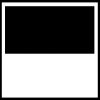Vancouver is a small town, an isolated town, and a vast city. It sits at the end of a river that winds south, then west, then south again, and then winds a bit to the north before splitting into two parts that wind generally west until they lose themselves in the sea. The city lies just north of the river, but not as far north as the mountains that churn up from the ocean and ripple into the distant heart of the BC Interior like a glass of water when a Tyrannosaurus is around.
The land, once a rain forest land, a land that undulates in and out of water, rises into the alpine in places, and in other places — the low places, the deltas — doesn’t. It’s a land where, in the dead of winter, the water flows down, down, down, then a bit to the left, and then out to sea, as if the city it passed were a fleeting thought in its consciousness. Had the river known, as it rippled in the breeze, burbled over rocks, and bubbled up with little brown things outside the pulp mill, that the city, too, was alive, then it may have paused in its long meandering pilgrimage over the low hills that tumble down from the ripply part of the mountains, down and down, and then a bit to the left.
Or maybe, in its rush to the sea, the rain-fed river would drive ahead like a blinkered horse, sweaty after a long trek through the mountains in the east and then down and down though the low hills — the hills that are lower than the ones before, and lower still than the ones before them — and down through the delta. And like a horse, the river ploughs through the fertile farmland, before rushing out to sea. Fortunately, the horses usually don’t get as far as that.
From the mountain in the north, slides the never-ending flow of laden clouds that drench the city in an endless torrent of rain. Vancouver, the city perched between the rippling mountains to the north, the winding river to the south, and the low hills to the east that seem to have tumbled out of the rippling mountains to the east of that, is not really a city at all. It is rain.

